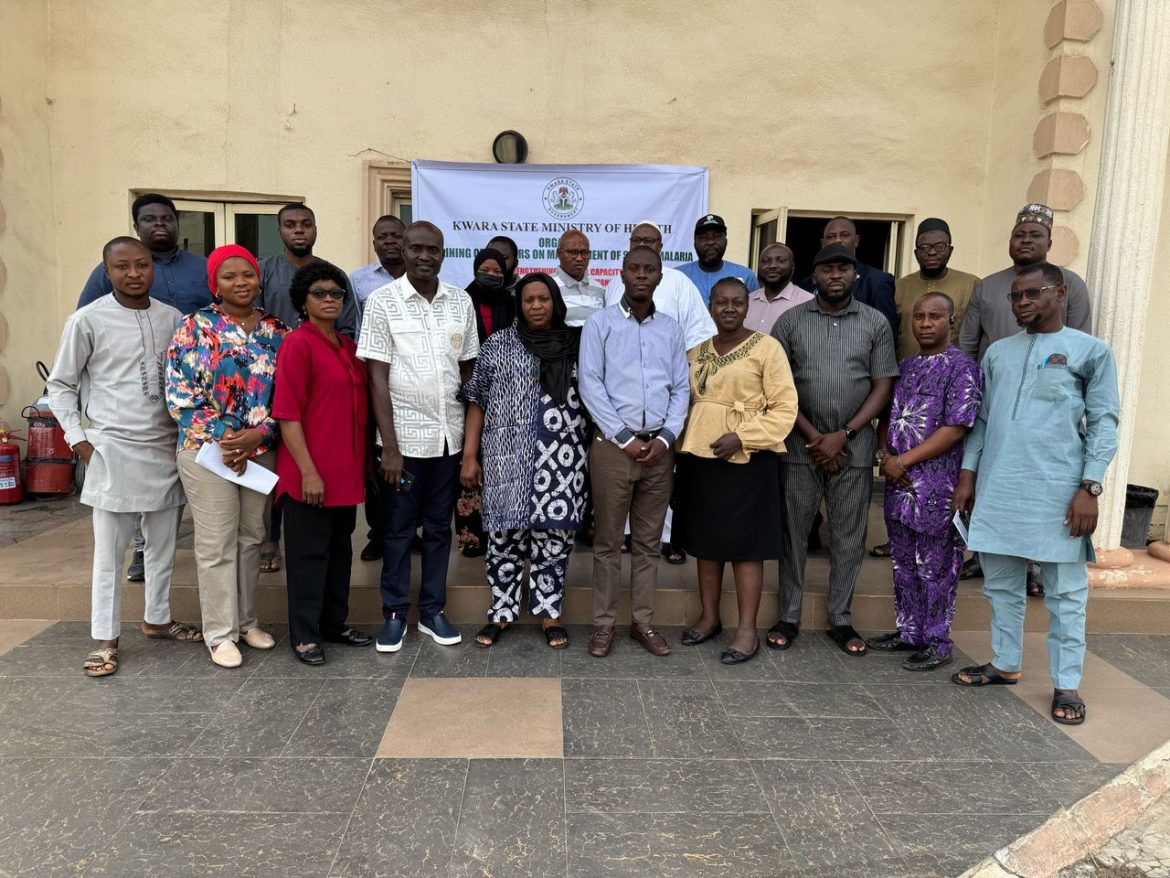By Fatima Mohammed-Lawal
The Kwara Government has organized a two-day intensive workshop for medical doctors across state health facilities, focusing on the management of severe malaria.
Speaking at the workshop, the Director of Public Health, Kwara Ministry of Health, Dr. Oluwatosin Fakayode, explained that the workshop is part of the strategic move to eliminate malaria and improve healthcare delivery in the state.
He pointed out that the training aims to boost the clinical skills of frontline healthcare professionals in the fight against severe malaria.
The theme of the workshop is entitled: “Strengthening Clinical Capacity for Early Detection, Effective Management, and Reduction of Mortality from Severe Malaria”.
Fakayode emphasized the urgency of early diagnosis and prompt treatment of severe malaria, particularly in vulnerable populations such as children under five and pregnant women.
“This initiative forms part of the broader state malaria control efforts, including preparations for the 2025 Seasonal Malaria Chemoprevention (SMC) campaign.
“The SMC program will see the house-to-house distribution of preventive antimalarial medication to children aged three to 59 months across 11 eligible local government areas in Kwara,” he said.
According to him, severe malaria remains a major public health threat in Nigeria.
He commended Gov AbdulRahman AbdulRazaq for the unwavering commitment to malaria elimination and his continuous investment in strengthening clinical capacity across all levels of care.
In her remarks, the Programme Manager of the Malaria Unit, Alhaja Latifat Abdullahi, expressed deep appreciation to the participating medical doctors for their dedication to the cause, despite their demanding schedules.
She emphasized the importance of continuous professional development in achieving better healthcare outcomes and urged the doctors to put their newly acquired skills into practice.
Also speaking, Dr. Oladapo Kazeem, Head of Malaria Case Management, stated that Nigeria contributes approximately 24 percent of global malaria deaths.
He stressed that Kwara has seen a significant reduction in malaria prevalence among children under five—from 26 percent in 2015 to six percent in 2021.
Kazrem credited the achievement to the state’s investment in robust health interventions, increased access to Artemisinin-based Combination Therapies (ACTs), and strengthened health systems.
“By equipping doctors with enhanced clinical competencies, the Kwara State Government reinforces its commitment to reducing mortality from severe malaria and achieving a malaria-free state,” he said.
